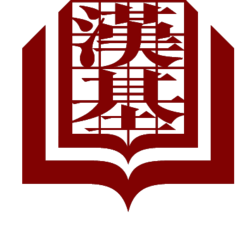Chinese International School
| Chinese International School | |
|---|---|
 | |
| Address | |
|
1 Hau Yuen Path Braemar Hill, North Point | |
| Coordinates | 22°17′2.91″N 114°11′50.94″E / 22.2841417°N 114.1974833°ECoordinates: 22°17′2.91″N 114°11′50.94″E / 22.2841417°N 114.1974833°E |
| Information | |
| Type | Reception-Year 13 (ages 4–18), private, international, mixed-sex |
| Established | 1983 |
| School district | Eastern |
| Headmaster | Dr. Theodore S. Faunce Ph.DS. |
| Grades |
Reception (= UK Kindergarten, or US pre-K) - 13 (= UK A-Levels, or US Grade 12) |
| Enrollment | Approximately 1,500 |
| Colour(s) | Maroon and Navy |
| Mascot | Phoenix |
| Website | http://www.cis.edu.hk |
Chinese International School (漢基國際學校, pinyin: Hànjī Gúojì Xúexìao) is a private coeducational school, located in Hong Kong, for students in Reception to Year 13 (pre-K to 12). A defining characteristic is its bilingual programme taught in English and Chinese (Mandarin). Students come from diverse backgrounds, with over 30 nationalities represented. At the Secondary level, students pursue the International Baccalaureate (IB) Middle Years and Diploma programmes. The campus is located in the residential neighbourhood of Braemar Hill in North Point, adjacent to country park green areas. It is a member of the G20 Schools association.
History
The school opened in 1983, with an initial intake of approximately 75 students in Years 1 to 3. Its first location was at 7 Eastern Hospital Road in Causeway Bay.
In 1986 and 1989, the school expanded to additional sites at 10 Borrett Road and 26 Kennedy Road. In 1991, the school moved to the current campus on Braemar Hill.
In 2014, the school opened its Hangzhou campus, for year 10 students, where students live and study in Hangzhou for one school year.
Administration
The school is overseen by a Board of Governors of approximately fifteen members. The Board has been chaired since 2013 by Douglas Eu, a parent of the school. Dr. Theodore S. Faunce joined the school as Headmaster at the start of the 2006–07 school year.
Facilities
The school's campus is made up of seven buildings, called "blocks" and connected by open-air walkways. Facilities include:
- Specialised labs and studios for the sciences (8), information and design technology (12) and the arts (9).
- A 200-seat auditorium.
- A 200-seat black-box drama studio.
- Four gymnasia.
- A 25-meter indoor swimming pool, fitness room and outdoor climbing wall.
- An outdoor sports field shared with The Hong Kong Japanese School, equipped with a football pitch and two multipurpose ball courts, suitable for tennis, basketball, volleyball or netball.
- Learning technology, including laptops and other devices; a school intranet called "Moongate"; and Gmail-based e-mail accounts for students and staff to facilitate communication and collaboration. The school also subscribes to various educational websites and databases.
Curriculum
Students are organized into separate Primary and Secondary "schools" but share the same campus, similar school days and a linked curriculum. The Primary division has approximately 600 students aged 4 to 11 from Reception to Year 6, while the Secondary division has approximately 900 students aged 11 to 18 from Years 7 to 13.
Bilingual education
A defining characteristic of the school is the fact that all students pursue a single program taught in both Chinese (Mandarin) and English - that is, there are no separate language streams. The Chinese-language component continues up until graduation in Year 13, although the main language of instruction remains English.
At the Secondary level, students also have the option to study French (up to IB level) or Spanish.
Primary School
CIS has adopted an approach to the teaching of the Primary curriculum in English and Chinese that involves collaborative teacher-partnerships, ensuring that students receive close teacher attention while also learning both two languages in an integrated way. Every homeroom is led by a pair of teachers with combined native language abilities in both English and Mandarin, and at every year level, teachers of the two languages collaborate to plan and teach outcomes from the school's inquiry-based integrated program.
Student life
- Debate Club
- Model United Nations[1]
- Music Club
- Programming For People
- Serious Business
- Science Adventures
- Science & Math Society
- Science Illustrated
- Science Study Group
- Scribbles Magazine
- Speech Festival-English
- Stretch-n-Grow
- Tapestry-Making
- World Wildlife Foundation
- World Vision Group
- Yearbook Committee
- Xiao Hua Magazine
- French Club
- World Scholar's Cup
- Robotics Club
- Kids4Kids
- Psychology Club
Student Council
Serving as chief representatives of the student body are the Head Boy and Head Girl, who are selected annually from among applicants from the rising Year 13 class. The Head Boy and Head Girl are supported in their roles by an elected Secondary Student Council. In the primary school, students in Years 5 and 6 elect a Primary Student Council, one representative and one deputy from each class.
International Mathematics Competitions
Chinese International School students have competed in several International Mathematics Competitions such as the 2012 and 2014 Raffles Invitational Mathematical Olympiad and the South East Asian Mathematics Competition.